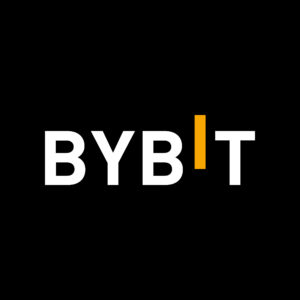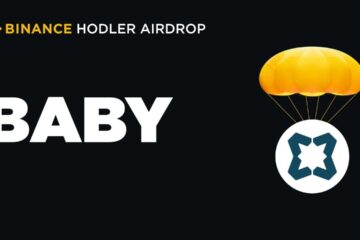The Netherlands has a strong crypto market with several reliable exchanges. Choosing the best crypto exchange in the Netherlands depends on factors like security, fees, payment methods, and available cryptocurrencies.
Also, crypto exchanges in the Netherlands must comply with the Dutch Central Bank (DNB) regulations. This ensures user protection and a secure trading environment. This guide covers the best crypto exchanges in the Netherlands, key factors to consider, and how crypto tax works for Dutch traders.
List of the Best Crypto and Bitcoin Exchanges in the Netherlands
- Bybit: Best derivatives platform in the Netherlands
- Bitget: Best for Altcoin trading
- MEXC: Cheapest crypto exchange in the Netherlands
- Coinbase: Regulated Dutch trading platform
- Kraken: Safest crypto exchange Netherlands
- Crypto.com: Best crypto app in the Netherlands
- OKX: Best for advanced crypto traders
Best Crypto Trading Platforms in the Netherlands – Detailed Review
1. Bybit: Best derivatives platform in the Netherlands
Bybit is our #1 choice as the best crypto exchange in the Netherlands. Launched in 2018, Bybit’s recent expansion into the Netherlands through “Bybit.nl” makes it a prime option for Dutch traders.
In partnership with Satos, a regulated Dutch crypto service provider supervised by De Nederlandsche Bank (DNB), Bybit ensures full compliance with local laws. This collaboration allows Dutch traders to deposit and withdraw EUR easily using popular methods like iDEAL with zero fees.
Bybit offers access to over 500 trading pairs, including popular cryptocurrencies like Bitcoin (BTC) and Ethereum (ETH), alongside a wide range of altcoins. It excels in derivatives trading, providing futures, perpetual swaps, and options with up to 100x leverage. The platform also features a “One-Click Buy” option for instant crypto purchases with competitive rates. Additional tools like trading bots, staking options, and a Web3 wallet are also available.
Pros of Bybit
- Bybit offers over 500 trading pairs for diverse options
- It supports euro deposits via iDEAL with no fees
- The platform provides up to 100x leverage on derivatives
- Bybit.nl complies with Dutch regulations through its Satos partnership
- Trading bots and staking add extra earning potential
Cons of Bybit
- Customer support response time may vary during peak hours
- Recently faced a $1.4B hack


2. Bitget: Best for Altcoin trading
Bitget is another exchange that is best for crypto traders in the Netherlands due to its advanced features and user-focused services. It serves over 100 million users globally, including Dutch traders. The platform supports over 800 cryptocurrencies and more than 900 trading pairs, giving Dutch users plenty of choices like Bitcoin, Ethereum, and altcoins.
Bitget’s best feature is copy trading. This allows users to follow and copy the trades of successful traders, which is great for beginners who want to learn or earn passively. It also provides spot trading for direct buying and selling and futures trading with up to 125x leverage.
Dutch traders can deposit and withdraw Euros for free via SEPA bank transfers. The platform’s mobile app is user-friendly, and Bitget prioritizes security with cold storage for funds, a $520 million protection fund, and regular proof-of-reserve updates. Trading fees are also low, or we can say quite competitive, starting at 0.1% for spot trades, and users get a 20% discount if they pay with Bitget’s token (BGB).
Pros of Bitget
- Offers copy trading to follow successful traders easily
- Supports over 800 cryptocurrencies for diverse trading options
- Provides free Euro deposits and withdrawals via SEPA
- Ensures security with cold storage and a protection fund
- Features a user-friendly mobile app for trading anywhere
Cons of Bitget
- Not registered with De Nederlandsche Bank for local regulation
- Limited fiat deposit and withdrawal methods


3. MEXC: Cheapest crypto exchange in the Netherlands
MEXC is the best exchange in the Netherlands, especially for those who value privacy with its no-KYC trading feature. This global exchange, founded in 2018 and based in Seychelles, allows users to trade without mandatory Know Your Customer (KYC) verification. You can sign up with just an email and start trading right away.
MEXC offers three account tiers: unverified, primary KYC, and verified plus. For unverified users, the platform sets a withdrawal limit of 10 BTC per day, which is generous compared to many exchanges requiring full verification. The exchange supports over 2,900 cryptocurrencies and more than 3,000 trading pairs, giving Dutch traders a huge variety to choose from. MEXC provides spot trading, futures trading with up to 200x leverage, peer-to-peer (P2P) trading, and copy trading tools. It also offers earning options like staking and savings products for passive income.
The platform keeps trading fees very low, with 0.01% maker fees and 0.04% taker fees for futures, and spot trading fees at just 0.05%. MEXC operates smoothly in the Netherlands, supporting EUR deposits via SEPA transfers and credit cards.
Pros of MEXC
- MEXC offers no-KYC trading for privacy-focused users
- The exchange supports over 2,900 cryptocurrencies
- It provides low fees, like 0.05% for spot trading
- Users enjoy up to 200x leverage on futures
- MEXC allows 10 BTC daily withdrawals without KYC
Cons of MEXC
- MEXC lacks regulation from the Dutch Central Bank
- No-KYC trading increases money laundering risks


4. Coinbase: Regulated Dutch trading platform
Coinbase is another top exchange that earns trust with its registration at De Nederlandsche Bank (DNB), ensuring it has followed strict Dutch regulations since its approval in 2022. The platform provides a simple way to buy and sell crypto instantly using fiat currency, like EUR.
The platform supports instant buy and sell options with fiat through methods like iDEAL. You can deposit euros for free via iDEAL and trade over 200 cryptocurrencies. Coinbase also offers SEPA transfers and card payments, making it easy to fund accounts quickly. The exchange charges a fee of 1.49% for standard buy/sell trades, which is higher than some competitors, but the convenience of instant transactions balances this cost for many.
Coinbase stands out with its clean interface and mobile app. The platform ensures security with two-factor authentication (2FA) and cold storage for 98% of funds, keeping assets safe. Dutch traders enjoy staking rewards, earning up to 5% on assets like USDC.
Pros of Coinbase
- Coinbase registers with De Nederlandsche Bank for legal compliance
- The platform supports instant buy/sell with euros via iDEAL
- Users trade over 200 cryptocurrencies quickly and easily
- The exchange offers strong security with 2FA and cold storage
- Coinbase provides staking rewards of up to 5% on assets
Cons of Coinbase
- The exchange charges 1.49% fees for standard trades
- The platform offers fewer crypto-to-crypto trading pairs
- Basic mode lacks advanced tools for experienced users


5. Kraken: Safest crypto exchange Netherlands
Kraken is the safest platform for cryptocurrency trading in the Netherlands. Founded in 2011, this exchange has built a strong reputation for security and reliability. It holds a registration with De Nederlandsche Bank and ensures it follows Dutch regulations for anti-money laundering and customer safety. Kraken serves over 10 million users worldwide, with a significant presence in Europe, including the Netherlands.
The platform offers a wide range of features for Dutch traders. It supports over 320 cryptocurrencies, such as Bitcoin, Ethereum, and many altcoins. Kraken provides free Euro deposits via SEPA transfers and supports iDEAL payments for quick funding. The exchange also includes advanced trading tools through Kraken Pro, like margin trading with up to 5x leverage and futures trading.
For beginners, the standard interface keeps things simple and easy to use. Kraken ensures strong security with 95% of funds in cold storage, two-factor authentication (2FA), and withdrawal whitelists.
Pros of Kraken
- Offers over 320 cryptocurrencies for trading
- Supports free SEPA and iDEAL payments
- Provides strong security with cold storage
- Includes advanced tools like margin trading
- Features 24/7 customer support options
Cons of Kraken
- Charges high fees for Instant Buy, up to 3%
- Many new altcoins are not available for trading


6. Crypto.com: Best crypto app in the Netherlands
Crypto.com is the best crypto app in the Netherlands. The exchange provides a wide range of features for users in the Netherlands. You can trade over 250 cryptocurrencies, including popular ones like Bitcoin and Ethereum. Crypto.com also offers a mobile app that makes trading simple and fast, even for beginners.
The app includes a user-friendly design so you can buy, sell, or manage your assets with ease. For payments, the platform supports EUR deposits through SEPA transfers, which work well for Dutch bank accounts. It also offers a Crypto.com Visa card, allowing you to spend your crypto at stores with cashback rewards in crypto.
The platform uses cold storage for 98% of user funds, keeping them safe from hacks. It also adds two-factor authentication (2FA) to protect your account. For those who want to earn extra, Crypto.com provides staking options, where you can lock up certain coins to gain interest over time.
Pros of Crypto.com
- The platform supports over 250 cryptocurrencies for trading
- Users enjoy SEPA transfers for easy EUR deposits
- The Visa card offers crypto cashback rewards
- Cold storage secures 98% of user funds safely
- Staking options let users earn interest on coins
Cons of Crypto.com
- Trading fees start high for small transactions
- High fees apply for non-staked card users


7. OKX: Best for advanced crypto traders
OKX ranks as the top Dutch crypto exchange due to its advanced features and local support. The platform launched its services in the country in June 2024, offering Dutch users a reliable and secure trading experience.
The exchange provides access to over 350 cryptocurrencies for spot trading. It also offers more than 60 trading pairs with the Euro, making transactions smooth for Dutch users. OKX integrates with iDEAL, a widely used payment system in the Netherlands. Users can also use SEPA for deposits and withdrawals, adding flexibility. The platform charges competitive fees, with a maker fee of 0.08% and a taker fee of 0.1%, which suits active traders.
OKX goes beyond basic trading. It includes advanced options like futures trading with up to 100x leverage and margin trading for those seeking higher returns. The OKX Wallet gives users full control over their assets and connects them to DeFi and NFT services. The exchange also features a decentralized exchange (DEX) and staking options for earning passive income.
Pros of OKX
- OKX supports over 350 cryptocurrencies for trading
- The exchange offers low fees, starting at 0.08%
- It provides iDEAL for free, instant Euro deposits
- OKX includes futures trading with up to 100x leverage
- The platform has local Dutch customer support for users
Cons of OKX
- OKX does not support some smaller local payment methods
- Advanced features might confuse inexperienced crypto traders


Best Crypto Exchanges in the Netherlands – Comparison Table
| Exchange | Supported Coins | Trading Fees | EUR Deposit Methods | Licensed in the Netherlands? |
| Bybit | 500+ | 0.1% | iDEAL (free), SEPA | Yes (via Satos partnership) |
| Bitget | 800+ | 0.1% | SEPA (free) | No |
| MEXC | 2,900+ | 0.05% | SEPA, Credit Card | No |
| Coinbase | 200+ | 1.49% (instant buy/sell) | iDEAL (free), SEPA, Card | Yes (DNB registered) |
| Kraken | 320+ | 0.25% maker and 0.4% taker | SEPA (free), iDEAL | Yes (DNB registered) |
| Crypto.com | 250+ | 0.25% maker and 0.5% taker | SEPA | Yes |
| OKX | 350+ | 0.08% maker and 0.1% taker | iDEAL (free), SEPA | Yes |
How to Choose a Crypto Exchange for Dutch Traders?
Accessibility
Accessibility is how simple it is for Dutch traders to get on the platform. The exchange must work in the Netherlands and follow rules from De Nederlandsche Bank (DNB). Some have Dutch language options, which is good if English is tough for you. See if it runs well on your phone or computer. A platform that’s hard to use or doesn’t let Dutch people join isn’t worth it.
Liquidity of Crypto Assets
Liquidity is how fast you can buy or sell crypto without price slippage. A platform with lots of traders makes trades quick and smooth. Dutch traders need this so they get the price they want. Look at the trading volume—more volume means better liquidity. A place with low activity can cost you money because trades take too long.
Customer Support
Customer support is how the platform fixes your problems. Good Support replies fast and knows what Dutch traders deal with. Some of the best crypto exchanges in the Netherlands give help all day through chat or email, which is handy for late-night trading. Try asking a question before signing up to see how quick they are. Slow or bad support can leave you waiting when you need help.
Trading Fees
Trading fees are what you pay to buy or sell crypto. Lower fees mean you keep more of your cash, especially if you trade often. For example, one platform might take 0.1% per trade, and another 1%. Look at fee details and if they drop when you trade more. High fees cut into what you earn, so find one that works for your wallet.
Payment Methods
Payment methods are how you put money in or take it out. The top preferred payment methods for Dutch traders are iDEAL or SEPA transfers, which are normal here. Some take credit cards but add extra costs. Make sure the platform uses euros (EUR) so you don’t pay to change money. If it has few ways to pay, starting or cashing out gets tricky.
Security
Security is how well the platform protects your money and details. Pick one with two-factor authentication (2FA) and most funds offline in cold storage. Dutch traders should go for exchanges tied to DNB for safety. Check if it’s been hacked before—skip ones with a bad past. Good security stops thieves from taking your crypto.
User Interface
The user interface is how the platform looks and feels when you use it. An easy layout helps you trade without getting lost, especially if you’re new. Some Netherland crypto exchanges have a simple version for new users and an advanced one for pros. Try it out—see if you can move around without trouble. A confusing setup can mess up your trades.
Reputation Amongst Dutch Traders
Reputation is what Dutch traders say about the platform. A solid one means it’s dependable and fair. Check what Dutch users say on forums or X for honest thoughts. A place with lots of gripes about delays or scams is a red flag.
Available Cryptocurrencies
Available cryptocurrencies are the coins you can trade on the crypto exchange. Some Netherland trading platforms stick to Bitcoin and Ethereum, while others give hundreds of choices. The traders might want big names or new coins, depending on their plan. Look at the coin list.
How to Buy Crypto and Bitcoin in the Netherlands?
To purchase cryptocurrencies like Bitcoin in the Netherlands, follow these steps:
- Select a Reputable Exchange: Choose the best cryptocurrency exchange that operates legally in the Netherlands. Ensure the platform is registered with De Nederlandsche Bank (DNB) to comply with local regulations. Examples of such exchanges include Coinbase and Bybit.
- Create an Account: Visit the chosen exchange’s website and sign up for an account. You’ll need to provide personal information and verify your identity, typically with a valid ID and proof of address.
- Add a Payment Method: Link a payment method to your account. Most Dutch exchanges accept bank transfers, credit/debit cards, and other local payment options. For instance, Coinbase supports bank deposits and PayPal.
- Deposit Funds: Transfer euros into your exchange account using the linked payment method. Some platforms allow instant deposits, while others may take a few business days to process.
- Purchase Cryptocurrency: Once your account is funded, navigate to the trading section, select the desired cryptocurrency (e.g., Bitcoin), and enter the amount you wish to buy. Review the transaction details, including any fees, before confirming the purchase.
Dutch Crypto Regulations
In the Netherlands, cryptocurrency is legal and regulated primarily under the framework of anti-money laundering (AML) and counter-terrorist financing (CTF) laws. The Dutch Central Bank (De Nederlandsche Bank, or DNB) oversees the regulation of crypto activities.
The Netherlands has implemented the EU’s 5th Anti-Money Laundering Directive (AMLD5) through the Dutch Money Laundering and Terrorist Financing Prevention Act (Wwft). This law requires cryptocurrency service providers, such as exchanges and custodian wallet providers, to register with the DNB if they offer services in or from the Netherlands.
The Netherlands is also aligning with broader EU regulations, such as the Markets in Crypto-Assets Regulation (MiCA), which will fully take effect by late 2025. MiCA introduces licensing requirements for crypto-asset service providers (CASPs), consumer protection measures, and rules for stablecoins.
While crypto transactions face no major restrictions, activities like borrowing and staking remain partially unregulated, though they may fall under consumer credit or investment scheme laws in specific cases.
How Is Crypto Taxed in the Netherlands?
In the Netherlands, cryptocurrency is taxed as an asset under the Dutch personal income tax system, which is divided into three categories, or “Boxes”.
Box 3: Wealth Tax for Most Crypto Investors
For most individuals, crypto holdings are taxed under Box 3 (income from savings and investments). This applies to casual investors who hold crypto as part of their personal wealth.
The tax is calculated based on the fair market value of all assets—including crypto—on January 1 of the tax year, minus debts and a tax-free threshold of €57,684 (as of 2025). The government assumes a fictitious return (deemed yield) on this net value, which is then taxed at a flat rate of 36%.
Conclusion
In a nutshell, choosing the best crypto exchange in the Netherlands depends on your trading needs, security preferences, and available features. The most regulated exchanges, like Bybit, Crypto.com, and Coinbase, offer reliable services, while platforms such as Kraken provide advanced trading tools.
Always check whether an exchange is registered with De Nederlandsche Bank (DNB) to ensure compliance with Dutch regulations. Also, you can consider factors like fees, payment methods, and customer support before making a decision.
FAQs
Can You Trade Crypto in the Netherlands?
Yes, you can trade crypto in the Netherlands. The government allows it under strict regulations. You must use registered crypto exchanges in the Netherlands, like Bybit or Coinbase. These platforms follow Dutch laws for safety and transparency. Trading is open to all Dutch residents with verified accounts.
What Is SEPA, and How Does It Benefit Dutch Cryptocurrency Traders?
SEPA is the Single Euro Payments Area, a system for fast bank transfers across Europe. It lets Dutch traders fund crypto accounts quickly. You will pay low fees compared to other methods, and transfers are usually completed within one day.
Can I Trade Altcoins on Dutch Cryptocurrency Exchanges?
Yes, you can trade altcoins on Dutch crypto exchanges. The best platforms, like Bybit, Coinbase, and MEXC, offer many altcoin trading options. They list all popular altcoins like Ethereum, Solana, Cardano, and many more.
Is It Safe to Buy Bitcoin in the Netherlands?
Yes, it is safe to buy Bitcoin in the Netherlands. Licensed exchanges follow European Union and Dutch regulations to protect users. These platforms use strong security measures, such as two-factor authentication (2FA), cold storage, PoR data, and anti-phishing code. You should store Bitcoin in a secure wallet, which adds extra protection against cyber threats.
What Is the Best Way to Store Bitcoin in the Netherlands?
The best way to store Bitcoin in the Netherlands is to use a hardware wallet. The best cold wallets, like Ledger or Trezor, keep private keys offline, which protects your Bitcoin from hacking and online threats. If you need to trade frequently, you can use a secure software wallet with two-factor authentication. You should avoid leaving large amounts of Bitcoin on exchanges because they are vulnerable to hacking and security breaches.
Is Binance Legal in the Netherlands?
No, Binance is not legally operating in the Netherlands. The company withdrew from the Dutch market in 2023 after failing to meet the registration requirements of De Nederlandsche Bank (DNB).
 Bitcoin
Bitcoin  Ethereum
Ethereum  Tether
Tether  XRP
XRP  Solana
Solana  USDC
USDC  TRON
TRON  Lido Staked Ether
Lido Staked Ether  Dogecoin
Dogecoin  Figure Heloc
Figure Heloc  Cardano
Cardano  Bitcoin Cash
Bitcoin Cash  Wrapped stETH
Wrapped stETH  WhiteBIT Coin
WhiteBIT Coin  Wrapped Bitcoin
Wrapped Bitcoin  Monero
Monero  Wrapped eETH
Wrapped eETH  USDS
USDS  Chainlink
Chainlink  Binance Bridged USDT (BNB Smart Chain)
Binance Bridged USDT (BNB Smart Chain)  LEO Token
LEO Token  WETH
WETH  Stellar
Stellar  Coinbase Wrapped BTC
Coinbase Wrapped BTC  Sui
Sui  Zcash
Zcash  Ethena USDe
Ethena USDe  Litecoin
Litecoin  Avalanche
Avalanche  Hyperliquid
Hyperliquid  Canton
Canton  Shiba Inu
Shiba Inu  Hedera
Hedera  USDT0
USDT0  sUSDS
sUSDS  World Liberty Financial
World Liberty Financial  Dai
Dai  Toncoin
Toncoin  Cronos
Cronos  Ethena Staked USDe
Ethena Staked USDe  PayPal USD
PayPal USD  USD1
USD1  Uniswap
Uniswap  Polkadot
Polkadot  Mantle
Mantle  Rain
Rain  MemeCore
MemeCore  Bittensor
Bittensor 


